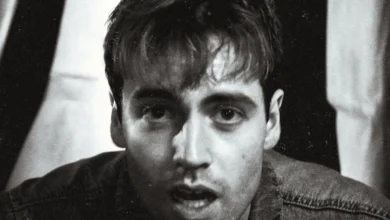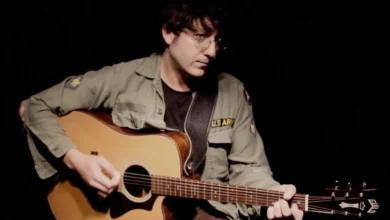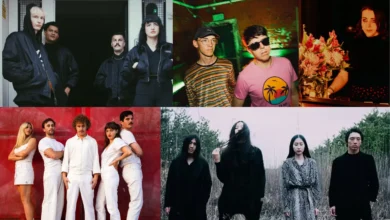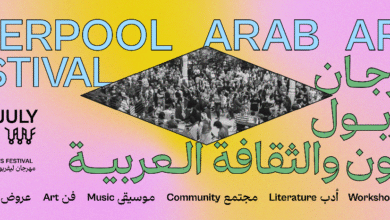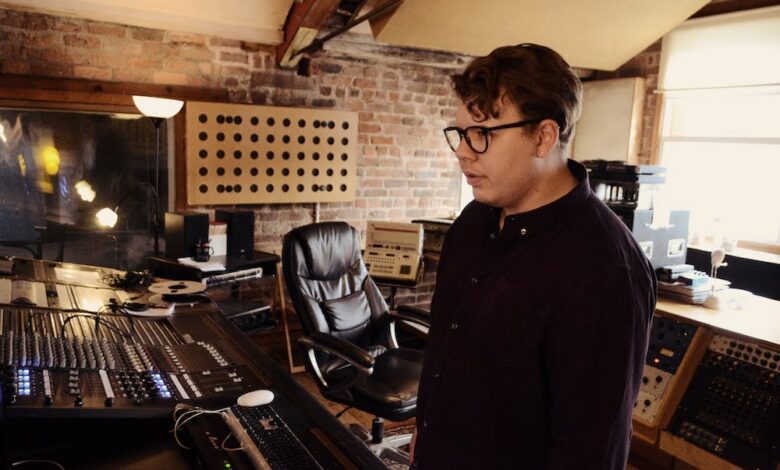
In Conversation – Tom Roach
Tom Roach is one of the leading up and coming music producer’s/engineers working out of Liverpool. His mixing abilities have recently been acknowledged by his nomination for a Grammy award, and he has worked with some of the very best British Producers, and with links to this city, Ken Nelson (Coldplay, Gomez) and Ian Broudie (Echo & The Bunnymen, The Zutons).
We caught up with recently, and he gave us an insight into the development of his career…
Liverpool Noise: When did Elevator Studios – now Coastal Sound Recording Studios start, and why?
Tom Roach: The studio was founded as Elevator Recording Studio in 2000 by Tim and Paul Speed to compliment the rehearsal rooms they were already running. It quickly became a key part of the early 2000’s music scene and was heavily involved with the Delta Sonic record label and the surrounding Liverpool scene.
Tim still runs the studio and I started working from there about 6 years ago. At the end of 2020, the studio changed its name to Coastal Sound Recording Studios.
I started out assisting and engineering at studios in London and was lucky enough to meet and learn from some amazing producers, one of whom was Markus Dravs. When I mentioned to him I wanted to move back to Liverpool and work there, he recommended Elevator and put me in touch with Tim. It’s been brilliant to be a part of Liverpool’s music scene and see the studio grow.
Last year I also set up a personal mix studio at my house (Soda Pop Mix Studios!), which is where I do pretty much all of my mix work now!
LN: There seems to be more and more music being created on laptops…Has a recording studio now become – in some people’s eyes – a niche product?
TR: I think a high spec recording studio was always a niche product – so much of the high-end equipment is so prohibitively expensive. But now with people being able to achieve excellent results at home with personal set-ups, I think in a funny back- to-front way, it’s made it less niche.
People can get really far along with writing, demoing and producing and get seriously great results. It’s opened up production to a wider range of people and that’s such an amazing thing. It’s also definitely meant that studios have had to make themselves more affordable and with more people making their own music, it’s more artists who can come into a studio like Coastal and work on their music.
LN: What would you say are the benefits of working in your recording studio?
TR: I hope that Coastal is a space where anyone can come and feel comfortable and creative. My aim is to make the recording process as smooth and easy as possible. I don’t think any two projects are ever the same, so I always try to be responsive to the artist, to provide the right space and set-up. Everyone’s process is different, so it’s really important to adapt to help artists realise and capture their visions.
One of most important things about Coastal is the actual size and space that the studio has to offer. We have a large live room with lots of moveable acoustic screens, which means we can get big open sounds or really tight and controlled sounds. We can make the space into what the song or project needs. The live room is also fantastic sounding room – it’s a large wooden space perfect for drums and acoustic instruments. This really can take your source material to the next level.
Coastal really has an incredible collection of equipment. We have some of the best microphones you can get; our pair of vintage Neumann U67 microphones are a personal favourite! We have some of the best mic amps such as vintage Neves and some much sought after compressors.
The studio is based around a boutique console by MSE that I helped design. It works as a great centre piece of our control room and is perfect for modern production methods and workflow. We really do have a collection of recording equipment that’s hard to beat!
The aim has been if someone comes in to record, you have a great room, a great signal chain with the best equipment right from the source and microphone all the way through to the digital converters, and it will sound great! Then it’s just down to getting that right performance.
LN: Is it all about the equipment you have? What other factors come into play?
TR: Equipment is important and we really do have incredible equipment that I’m very lucky to be able to use every day, and we also have a great amount of space. For example if you’re doing drums, we have a great room, some great drum kits, great microphones going to great mic amps (our vintage Neves for drums!) And finished with excellent A/D conversion. We also have a brilliant headphone monitoring set-up where everyone can control and create their own personal mixes when they’re recording to get it just right. Sounds easy, right!
So then what makes the biggest difference is the actual performance of the music. It’s all about feel and emotion and I think that has to be able to come across in recordings. That comes down to how well you can play the part you’re recording and how comfortable you’re feeling – being in the right headspace. I’d like to think Coastal is a place which can really help with those aspects and make a big difference to your recordings.
LN: What is the role of an engineer?
TR: Sometimes… everything! It really depends on who you’re working with. But it’s always about being able to do the job of recording what’s in front of you. It’s about being able to adapt to a situation, making the recording process smooth and easy and making sure any ideas can happen. I think it’s also about collaborating with the artist and producer and creating a space in which great music and recordings can happen. I also think it’s super important to know really well what the equipment you’re using does and not just be like “this is just a magic box that makes things sounds great”.
LN: What is the role of a producer?
TR: Again sometimes… everything!!! Some producers are heavily involved in the songwriting, some are more focused on the engineering. But I think being a producer is ultimately about helping the artist you’re working with, to bring out their sound and make it as good as it can be. Knowing when to push and when the performance and the song is right. It’s about seeing the bigger picture of the project you’re working on. And there is undoubtably a fine line between engineering and producing.
For me, I like to help people make a decision, not so much dictating but collaborating and facilitating and bringing out what’s special about the artist. In the end, whatever project I’m working on isn’t “my record”, it’s the artist’s, so it’s about getting it to be as great as it can be.
LN: What is your favourite production technique at the moment?
TR: At the moment I’m really enjoying using lots of ribbon microphones in my recordings, for me they do such a great job of reproducing exactly what you put them in front of and they handle processing really well. In my mixing I’ve also been using more mid/side processing. I always want my mixes to sound exciting and feel like they grab you and pull you into the song and its world.
LN: What advice would you give to a band who have never recorded in a studio before, but are about to?
TR: Practice and involve your producer/engineer as early as you can and make a plan. It makes such a huge difference. Have conversations about how you hear your music sounding and maybe have some reference tracks that you can send, this might be songs you like sonically or arrangement-wise. Also talk about how you imagine recording your music. And, if you want to record to a click, then practice to one!
LN: What have been your stand-out sessions to date, and why?
TR: I feel I’ve been so lucky to be involved in recording and mixing some really special records. The stand-out one probably has to be mixing the album “Up and Rolling” by North Mississippi Allstars and seeing it get nominated for a Grammy this year. They are amazing players and were joined by some incredible
musicians on the album. Getting to mix a track with Mavis Staples singing on it was unreal.
Recently I’ve just engineered a session for a band called Crawlers which was produced by Pete Robertson – they poured absolutely everything into their recordings and that felt really special to be part of.
Early on at Coastal, I got to engineer for Ken Nelson, he’s such a great producer and has this incredible approach to recording. He taught me so much about engineering and working with other people. I’ve since engineered several projects for him that have taken me to some really brilliant studios.
We’ve recently done some great albums in the studio, including ones by Oscar Lang and Vistas. I’m so excited for those to be released.
LN: There is an old adage….”It can be sorted in the mix”. How true is this?
TR: I think the thing is with mixing, you can’t make bad into wonderful, just better than how it was. The better a song and production comes, the better you can make it. Sometimes when a track comes to be mixed and there are some real problems and people have maybe had this idea of fixing it in the mix, the process then becomes more about problem solving, and less about serving the song.
LN: What are your thoughts on the current Merseyside music scene?
TR: Without doubt these are worrying times for music scenes and it has been distressing seeing people who have been working really hard and who are really deserving of things to be happening for them, having it taken away from them by the pandemic.
It’s definitely been pretty upsetting to see people’s incomes dry up with a slow response of help. I really believe musicians and artists are resilient and I know some will still carry on but it’s sad thinking about how much music we could lose.
LN: Best bit of kit you ever bought for the studio?
TR: Before I started at the studio, the equipment list was already really impressive. But we’ve had a major Pro Tools upgrade including brand new converters which have been a huge improvement. We’ve also bought monitors that are suitable for such a large control room and they’re really great to work on. We’ve installed a custom boutique console and also spent time restoring some of our classic pieces such as our vintage Neumann U67 microphones to their original glory. I do love those microphones!
It’s either all that or our coffee machine… Though this has led to Gilmore Girls worthy levels of caffeine consumption.
LN: Worst piece of kit you ever bought for the studio?
TR: Six different AC30s! I really dislike those amps – sorry Tim, if you’re reading this!
LN: Predictions for 2021 with regard to the music industry?
TR: I think it would great to see people do more exploring with live streaming concerts and that all the issues around income from streaming start to improve!
Steve Kinrade




